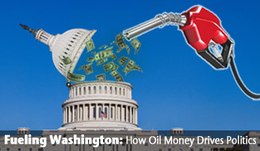I think Aaron Chatterji and Michael Toffel make an important point. Since the sustainability movement gained momentum in the early 1990s, little real progress combatting climate change has been made. For example, the Kyoto Protocol has largely failed to decrease the amount of carbon dioxide emissions, largely because governments have not held businesses to the targets. The world’s largest economies, the U.S. and China, never adhered to it and Canada has decided to renounce her protocol targets entirely while others will not renew targets.
Corporate lobbying plays a huge role in government policy, which I think most people forget because it is not widely publicized. Perhaps this helps explain why we see corporate sustainability initiatives but no environmental taxes or economic adjustments. After all, oil companies often promote sustainability initiatives while opposing policy changes. In class, Mr. Tansey said the UNEP defines sustainable development as “development that meets the needs of the present without compromising the ability of future generations to meet their own needs”, and lobbying against environmental policy could certainly comprise future generations.
In conclusion, I agree corporate sustainability rankings need to better account for corporate political activity, otherwise they inaccurately display the big picture and become moot.
In response to: Harvard Business Review (HBR) Blog Network: The Big Flaw in Corporate Sustainability Rankings
Articles:
http://www.ft.com/intl/cms/s/0/cdb66522-2519-11e1-8bf9-00144feabdc0.html#axzz2CeKFr5D9
http://www.guardian.co.uk/environment/2012/may/30/companies-block-action-climate-change
Image:
Kreighbaum, Andrew. “Fueling Washington.” Photo. Opensecrets.org 23 Aug. 2010. 18 Nov. 2012
<http://www.opensecrets.org/news/2010/08/post-2.html>.

